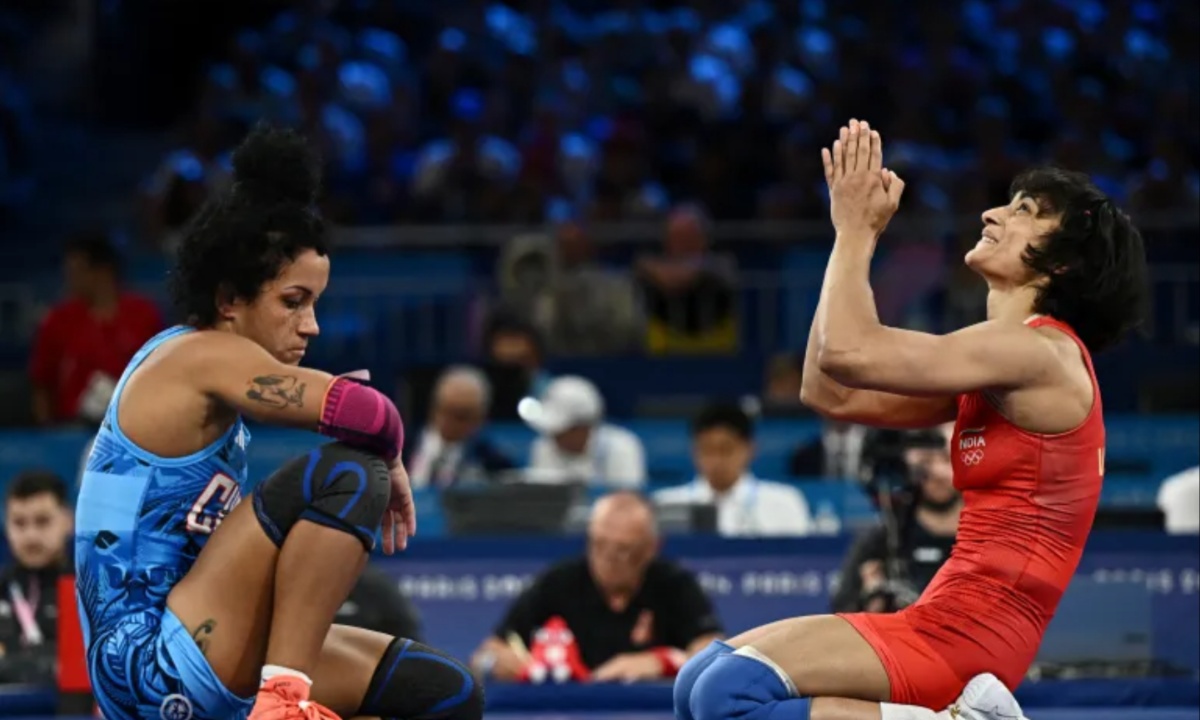The Indian wrestling team faced a series of unfortunate events at the Paris Olympics, causing considerable distress within the camp. On Friday, Aman Sehrawat secured India’s first wrestling medal in Paris, a bronze in the men’s 57kg category. However, Sehrawat experienced a dramatic weight loss of nearly five kilos in just ten hours before his medal bout, raising concerns about the impact of such extreme weight fluctuations on athletes.
Indian wrestler Antim Panghal, another hopeful for India, faced a tough Olympic debut. Panghal, who was expected to be a key contender following Vinesh Phogat’s absence from the World Championship due to protests against the former Wrestling Federation of India (WFI) chief, suffered a crushing 0-10 defeat against Turkey’s Zeynep Yetgil in her opening match. This early exit was a significant blow to India’s medal hopes.

Indian Wrestlers Face Setbacks at Paris Olympics Amid Weight Management Struggles and Disqualification
It was reported that Panghal resorted to extreme measures to make the weigh-in for her preliminary round. She reportedly starved herself for 48 hours, consuming only minimal water, which left her body in a weakened and dehydrated state. This drastic approach to weight management clearly impacted her performance in the match.
Vinesh Phogat, who had been a major contender for India in the women’s 50kg freestyle category, also faced a disappointing turn of events. She was disqualified from the final after being found 100 grams overweight during the weigh-in. This disqualification not only deprived her of a medal but also led to an emotional announcement of her retirement from the sport.
In response, Vinesh has appealed to the Court of Arbitration for Sport (CAS), seeking a joint silver medal. Supported by the Indian Olympic Association (IOA) and represented by senior counsels Harish Salve and Vidushpat Singhania, Vinesh is now awaiting a decision from CAS, hoping for a reversal of her disqualification and a resolution to her Olympic misfortune.
